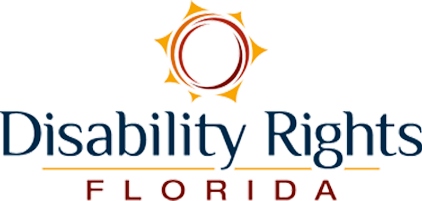Disability Rights Florida Blog
LGBTQ+ YOUTH
Disability impacts people from all backgrounds and all walks of life. What’s more, disability is only one part of someone’s identity. There are many things that make you who you are, and some youth with disabilities, just like some youth without disabilities, identify as lesbian, gay, bisexual, transgender or queer, commonly referred to as LGBTQ+. As with all LGBTQ+ youth, LGBTQ+ youth with disabilities should be aware of laws and regulations that protect them from discrimination based on their sexual orientation or gender identity.
The Legal Landscape
On June 26, 2015, the U.S. Supreme Court struck down all state bans on same-sex marriage, legalizing it in all 50 states and requiring states to honor out-of-state same-sex marriage licenses. Five years later, on June 15, 2020, the U.S. Supreme Court ruled that an employer who fires someone merely for being gay or transgender violates Title VII of the Civil Rights Act. This landmark civil rights legislation, passed in 1964, prohibits discrimination based on race, color, religion, sex, national origin, and now—because of the 2020 ruling—sexual orientation and gender identity.
In 2021, the Florida Commission on Human Relations determined it would enforce state civil rights laws that prohibit sex discrimination and that, due to the U.S. Supreme Court decision Bostock v. Clayton, their protections apply to individuals who are LGBTQ+. In this case, the U.S. Supreme Court affirmed that it is illegal to discriminate against LGBTQ+ individuals under the Civil Rights Act. Also, in 2021, President Biden issued an Executive Order prohibiting discrimination on the basis of sexual orientation and gender identity, making clear its policy to protect the LGBTQ+ community wherever federal law provides protections based on sex.
Given these actions, it is now illegal in the state of Florida to discriminate against someone in employment, housing and public accommodations based on sexual orientation and gender identity. In other words, according to state law, you cannot fire someone, evict them from housing, or deny them service at a restaurant or store just because they are LGBTQ+. Also, Florida has passed more local nondiscrimination laws than any other state in the country, and every single one of them includes sexual orientation and gender identity protections. These human rights ordinances are listed on the Equality Florida website at www.eqfl.org
The U.S. Equal Employment Opportunity Commission (EEOC) is the federal agency responsible for enforcing federal laws prohibiting discrimination against a job applicant or employee based on race, color, religion, sex (including pregnancy, transgender status and sexual orientation), national origin, age (40 or older), disability or genetic information. Most employers with at least 15 employees are covered by the laws that EEOC enforces (in the case of age discrimination cases, the threshold is 20). Most labor unions and employment agencies are also covered by these laws. Moreover, these laws apply to all aspects of employment, including hiring, firing, promotions, harassment, training, wages and benefits.
Support
Many LGBTQ+ individuals, both with and without disabilities, are happy and thriving in Florida. For youth, key predictors of success are attending a school that provides a safe and supportive learning environment and having a caring and accepting support system. Unfortunately, LGBTQ+ youth are more likely than their heterosexual peers to experience discrimination and, as a result, negative health and life outcomes. Negative attitudes toward LGBTQ+ youth lead to increased risk for bullying, teasing, harassment and physical assault. These safety concerns may result in LGBTQ+ youth not attending school, which in turn can lead to low graduation rates and long-term consequences related to higher education, vocational education, employment, mental health, suicide and substance abuse.
Resources
To learn more about LGBTQ rights, contact one of the resources below. For assistance with mental health and substance abuse, whether for you or a loved one, whether LGBTQ+ or not, please also see our Transition Toolkit's section on Mental Health.
Thanks for reading our blog. Please comment other topics and disability issues you'd like to see covered on our blog. We strive to bring content that is interesting and valuable to you, and we can do that best with feedback directly from you.
Leave Us Your Comments
Please do not leave requests for assistance in the comments. Blog comments are not monitored by intake staff and your request may not be seen. Visit our Online Intake Page to request our services.
Commenting is not available in this channel entry.

Comments